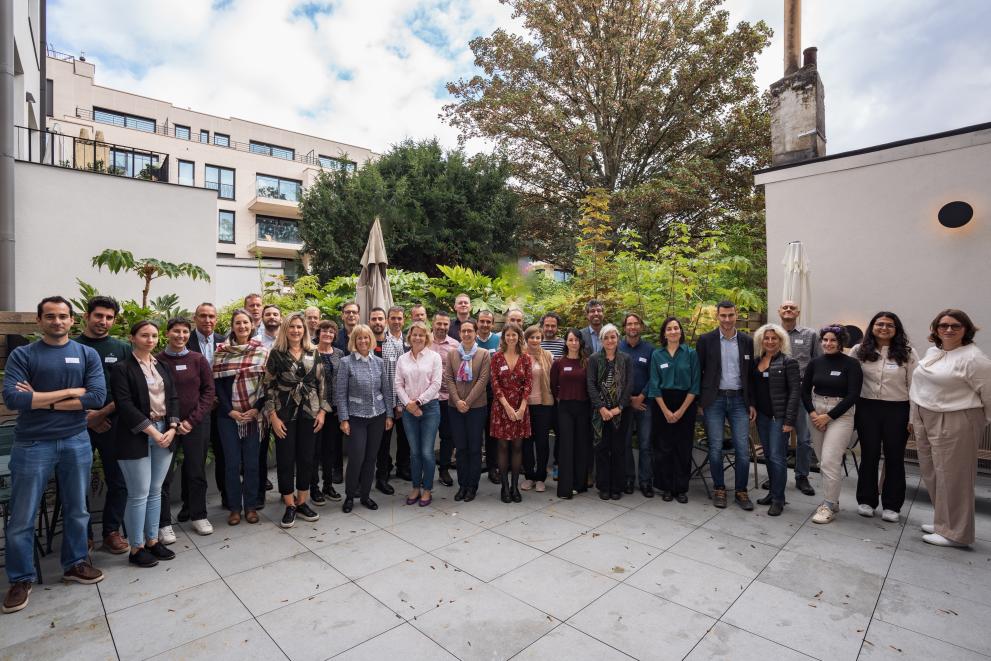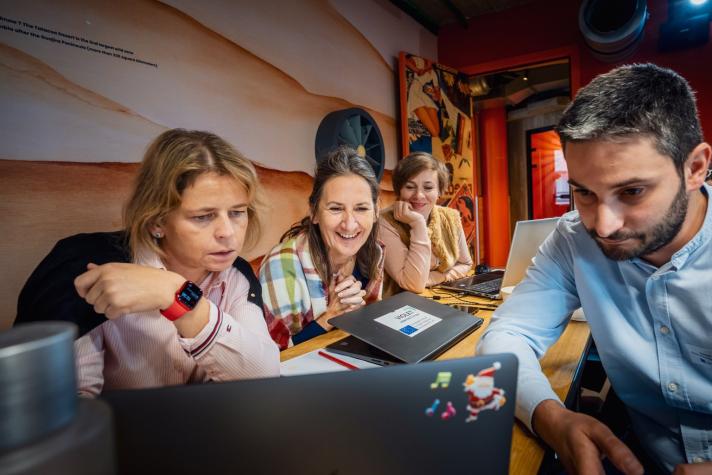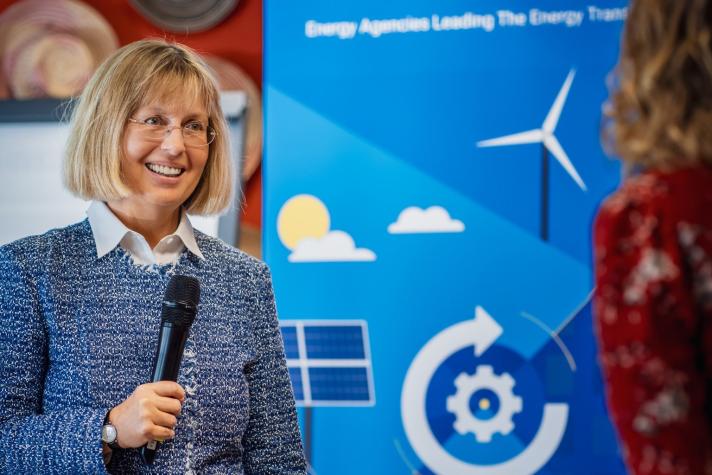
"By 2050, half of Europe’s citizens could be producing up to half of the EU’s renewable energy," stated ManagEnergy Trainer Francisco Puente (ESCAN, Spain) during the first session of the Master Class. This bold projection highlights the transformative potential of energy communities in shaping Europe's future energy landscape. But while the opportunity is vast, so are the challenges—particularly when it comes to navigating regulatory frameworks.
Energy communities are more than just technical projects—they represent a way to engage citizens in the energy transition, empowering local actors to take control of their energy needs. This is what the 7th ManagEnergy Master Class, held over three days in September and October 2024 online and in Brussels, sought to address. Led by experts Christiane Egger, Deputy Manager at OÖ Energiesparverband (Austria), and Francisco Puente, Director of Escan Energy Consulting (Spain), the course focused on developing participants' skills to support the creation and growth of energy communities across Europe.
The class covered everything from the European policy framework to the practicalities of setting up, financing, and operating energy communities. Contributions from representatives of the European Commission and CINEA provided valuable insights into regulatory barriers and potential funding opportunities.
A Diverse Group with Common Goals
The 27 participants, hailing from local and regional energy agencies as well as municipalities in 16 different countries, brought a wide array of experiences. This diversity enriched discussions and fostered a collaborative environment. Each participant worked on their own energy community initiative, receiving tailored feedback from mentors and experts.
"Energy communities are complex, but the role of energy agencies is to push them forward. This, in a way, is the job description of an Energy Agency."
Christiane Egger, ESV
A Complex Problem with Multifaceted Solutions
Even in countries with well-developed national frameworks, setting up an energy community can be a daunting task. Establishing these projects requires a blend of technical, social, and financial skills. During the Master Class, participants explored the different legal forms energy communities can take, their financing models, and how to build a sustainable project from the ground up.
A key feature of the Master Class was its focus on real-world application. Participants worked on concrete projects and received direct guidance from the trainers. They engaged in case study analysis, learning from successful examples across Europe. These projects not only illustrated the practical benefits of energy communities—such as lower energy costs and community ownership—but also demonstrated how they can foster social cohesion and civic engagement.
Energy communities extend far beyond just photovoltaic systems and local energy sharing. They represent a fundamentally new approach to building resilient, community-led energy systems. By involving local stakeholders in the management and production of energy, these communities are creating more sustainable and engaged energy solutions for the future.
As the Master Class progressed, it became clear that energy communities are poised to become a cornerstone of Europe’s energy transition. “Energy communities are no longer a niche for the environmentally conscious,” said Christiane Egger. “They are now an integral part of the energy landscape, and they’re here to stay.”
Conclusion: Start with the People
After three intense days, participants left the Master Class with a sense of empowerment, knowing that they had gained practical knowledge and a strong network of peers. The mix of in-depth training, real project feedback, and cross-border collaboration was invaluable for many.one key takeaway was that successful energy communities start with people. "They are the core drivers of these initiatives," emphasised Christiane Egger. Building trust and fostering engagement are essential to making these communities thrive.
The ManagEnergy Master Class left participants ready to move forward with their energy community projects, equipped with expert advice, concrete skills, and renewed confidence.
"It was a great masterclass, great teachers, participants, projects. Thanks a lot!"
Anita Petrucz, LENERG
The ManagEnergy Master Class has once again proven to be an essential stepping stone for those looking to lead the way in Europe’s energy transition.
The next ManagEnergy Master Class on Energy Communities will take place in April 2025. Stay tuned and Check out the full schedule
Watch the Class videos
Details
- Reference
- Master Classes
- Publication date
- 18 October 2024
- Author
- European Climate, Infrastructure and Environment Executive Agency


